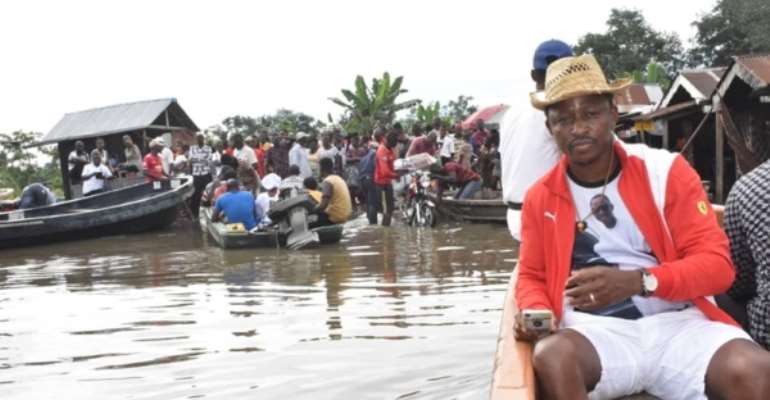Flood Invades Delta State Deputy Speaker’s Country Home, 21 Others

As Deltans continue to count their losses in the ravaging flood which has submerged over 16 local government areas of Delta State, the home town of the Deputy Speaker of the State House of Assembly, Mr Friday Osanebi, has been overtaken by the flood.
It was learnt Sunday, September 23, 2018, that the flood water sacked Beneku community, the very home town of Osanebi, and 21 other neighboring communities in the Ndokwa East local area of the state.
The Deputy Speaker who articulated that the flood would not cause further harm while inspecting the level of devastation caused, called on his people to be calm.
It was gathered that farmlands, plantations, fish bonds, the community market and school, residential buildings including the country of the Deputy Speaker were immersed in the flood.
Said he: “This natural disaster really came hard on my people but thank God no life was lost. The extent of damages done to the source of livelihood of the people which is farming is however a thing of big concern, and I commend my people for their calm disposition in the face of the problem”, as he was unable to access his house.
He appreciated the proactive approach by the Delta State Government to the natural phenomenon as well as steps taken thus far, to ameliorate the impact of the problem.
He stated that the disaster took farmers in the locality unawares particularly those around Ase Creek, as they never expected that the flood which gradually began recently would overflow its bank.
Osanebi explained that “the water suddenly began to rise, submerging farmlands and crops on the alluvial rich islands and adjoining farms on both sides of the River Niger which bear Ndokwa East communities. The ugly development caused lots of damages to farmers”.
The Deputy Speaker said communities mostly affected were those along the River Niger, including Beneku, Aballa-Oshimili, Utchi communities of Okwumedo, Umuochi, Owelle, Obalu and Obeche), Okpai, Abalagada, Aboh, Abuato, Ugbene, Agwe-Iyom, Ise-Onokpo, Onuobiuku, Umu-Ugbome, Umu-Uti, Afiankwo, Umuolu, Umuti, Akarai Adiai, Utuoku, Oworubia, Wari-Irri, and Onyah.
